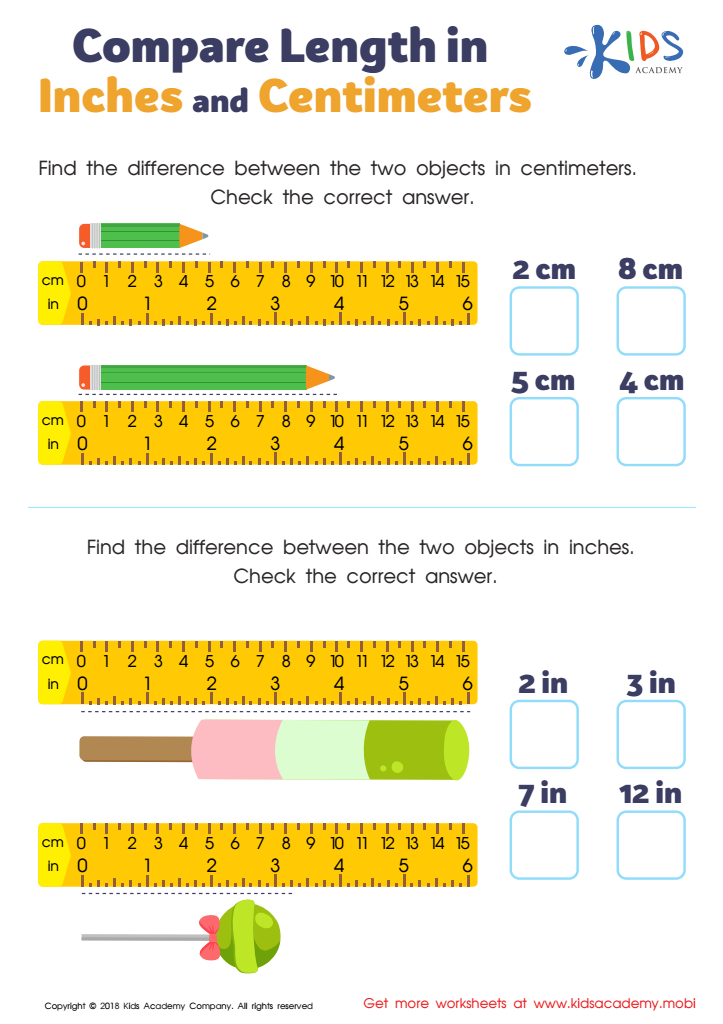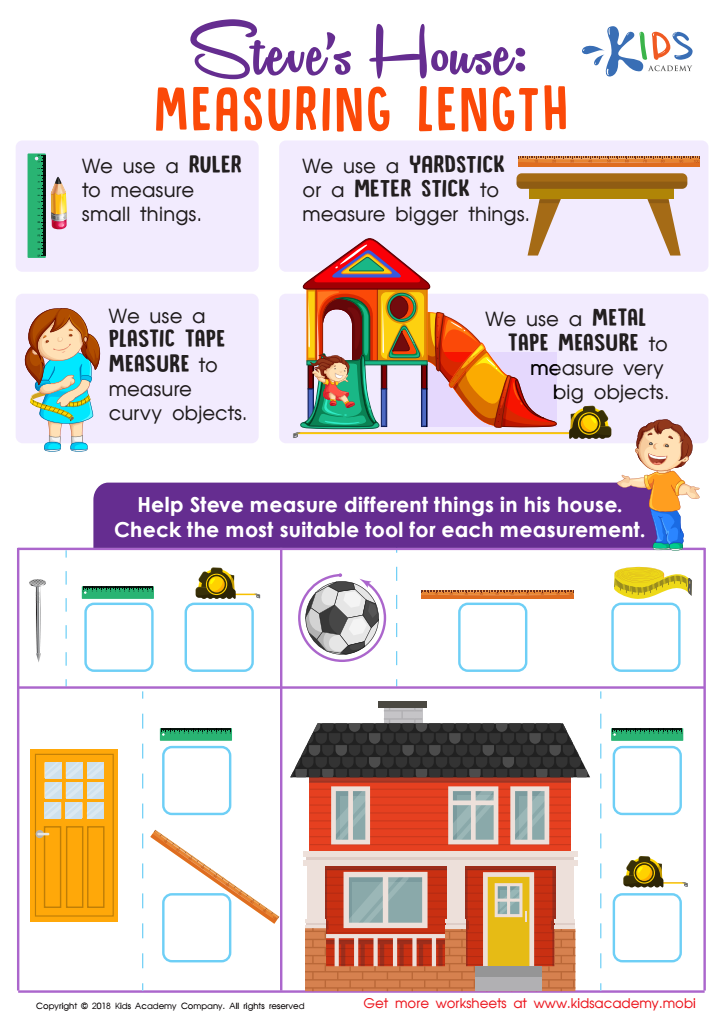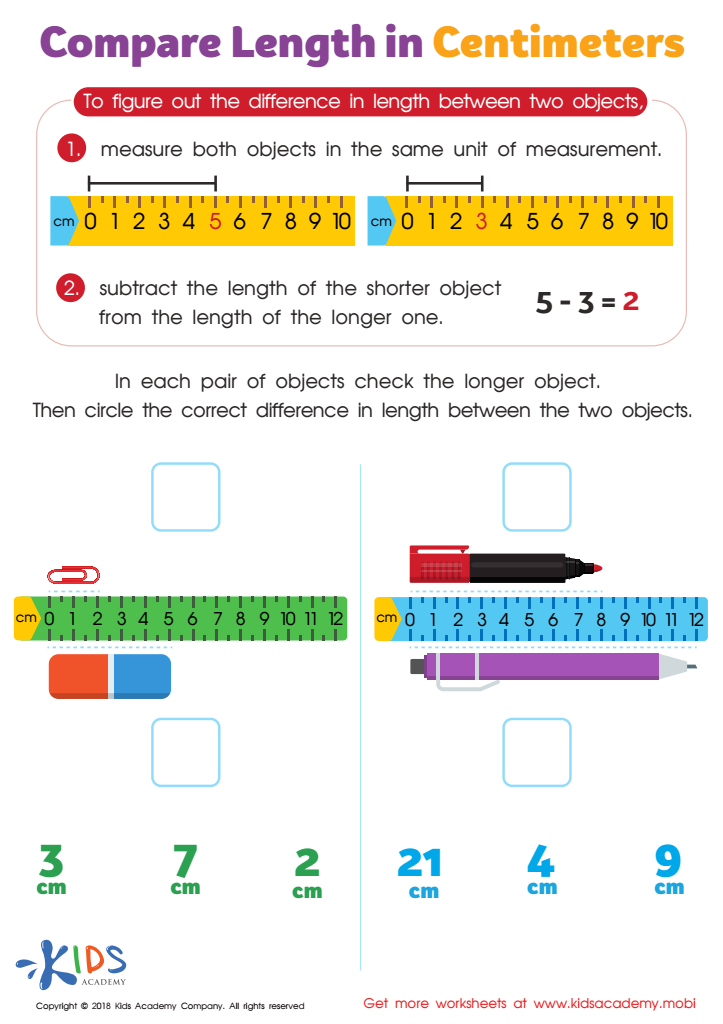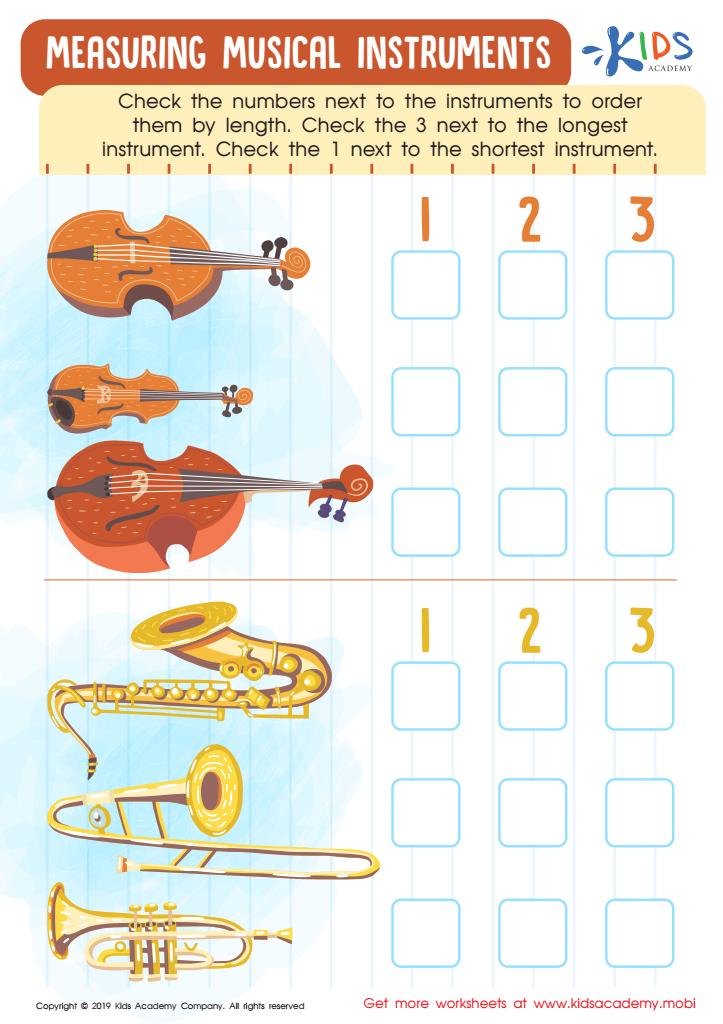Comparing lengths Normal Worksheets for Ages 5-8
4 filtered results
-
From - To
Explore our engaging "Comparing Lengths Normal Worksheets" tailored for children ages 5-8! These worksheets are designed to help young learners grasp the concept of length through fun and interactive activities. Students will practice comparing various objects, learning to identify which is longer or shorter while enhancing their measurement skills. With vibrant illustrations and age-appropriate exercises, these worksheets foster critical thinking and boost confidence in math. Perfect for classroom use or homeschooling, our resources support the development of essential foundational skills in a playful way. Download your free worksheets today and make learning about lengths an exciting adventure for your child!


Compare Length in Inches and Centimeters Worksheet


Steve's House: Measuring Length Worksheet


Compare Length in Centimeters Worksheet


Measuring Musical Instruments Worksheet
Comparing lengths is a fundamental concept in early mathematics that fosters critical thinking and problem-solving skills in children aged 5-8. This skill helps children understand measurements, which is essential not only in math but also in everyday life. Engaging in activities that involve comparing lengths encourages curiosity and exploration, enabling children to apply their knowledge of size relationships through hands-on experiences.
For parents and teachers, fostering an understanding of length comparison aids in a child’s cognitive development. It lays the groundwork for more complex concepts, such as geometry and measurement, which they will encounter as they progress in their education. Moreover, learning to compare lengths cultivates language skills, as children learn vocabulary related to size, such as "longer," "shorter," "taller," and "smaller."
Incorporating comparison activities into play and learning activities also enhances fine motor skills, as children often manipulate objects, measure items, and engage in crafting. Overall, emphasizing comparing lengths contributes to a holistic approach to education, nurturing well-rounded, capable individuals who are prepared for future challenges in math and beyond. By supporting this foundational skill, parents and teachers set the stage for lifelong learning and confidence in handling mathematical concepts.
 Assign to My Students
Assign to My Students





















